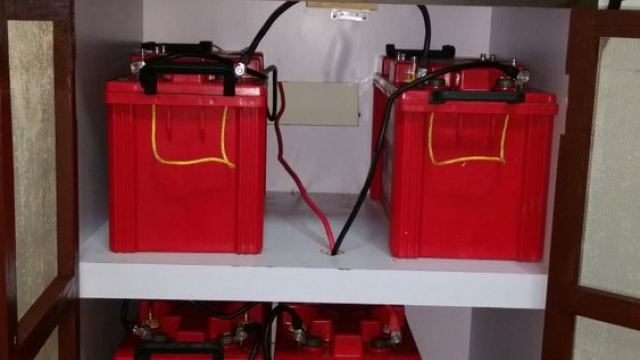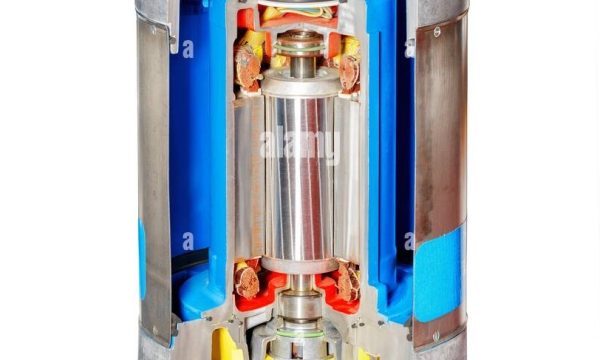
In today’s fast-paced world, where technology dominates our daily lives, ensuring a reliable power supply is more crucial than ever. Uninterrupted Power Supply (UPS) batteries play a vital role in safeguarding our electronic devices against sudden power outages, fluctuations, and surges. Whether for personal use or in a business environment, having a dependable UPS battery can provide peace of mind, allowing you to work, play, and stay connected without the fear of losing data or damaging equipment.
Understanding the different types of UPS batteries and how they function can help you make an informed decision when choosing the right one for your needs. With a variety of options available, from basic consumer models to advanced systems for critical applications, it’s important to know what features to look for and how to maintain these devices for optimal performance. This guide will explore the essentials of UPS batteries, empowering you to protect your technology and maintain uninterrupted power flow at all times.
Understanding UPS Batteries
UPS batteries are an essential component of uninterruptible power supply systems, providing backup power during outages and safeguarding equipment from voltage fluctuations. They ensure that sensitive devices, such as computers and servers, continue to operate smoothly even in the event of a power failure. The reliable operation of UPS systems depends heavily on the type, capacity, and health of their batteries, making it crucial to understand their functions and features.
There are various types of batteries used in UPS systems, with lead-acid and lithium-ion being the most common. Lead-acid batteries are popular due to their cost-effectiveness and robustness, making them suitable for a wide range of applications. On the other hand, lithium-ion batteries offer advantages such as higher energy density and longer lifespan, which are becoming increasingly appealing as technology advances. The choice between these battery types often boils down to specific needs, budget constraints, and desired performance characteristics.
Maintenance and monitoring of UPS batteries play a significant role in extending their lifespan and ensuring reliable performance. Regular checks on battery health, temperature, and charge cycles can prevent unexpected failures and costly downtimes. It is also important to follow manufacturer guidelines for replacement and to consider environmental factors that may affect battery performance. By understanding these aspects, users can make informed decisions and optimize the functionality of their UPS systems.
Choosing the Right UPS Battery
Selecting the appropriate UPS battery is crucial to ensure that your devices remain powered during outages. Begin by identifying your power requirements. Different devices consume varying amounts of power, so calculate the total wattage of the equipment you will connect to the UPS. This will guide you in choosing a battery with sufficient capacity to handle your load for the required duration during an outage.
Next, consider the type of UPS technology that best fits your needs. There are three main types: standby, line-interactive, and online double-conversion. Standby UPS systems are the most basic and affordable, suitable for home use. Line-interactive systems offer better management of voltage fluctuations, making them ideal for small offices. Online double-conversion systems provide the highest level of protection and are best for critical equipment. Your choice will depend on both the sensitivity of your devices and your budget.
Lastly, look into the battery lifespan and maintenance requirements. UPS batteries typically have a lifespan of three to five years, but this can vary based on the brand and usage conditions. Check reviews and warranties to ensure you are investing in a reliable battery. Additionally, some batteries may require more maintenance than others, so consider how much effort you are willing to put into upkeep. By assessing your power needs, understanding the technology types, and evaluating battery longevity, you can confidently choose the right UPS battery for your peace of mind.
Maintenance Tips for Longevity
To ensure your UPS batteries serve you well over time, regular maintenance is essential. First, check the battery connections routinely. Loose connections can lead to poor performance and decreased efficiency. Make sure all terminals are clean, tight, and free of corrosion. If you notice any buildup, use a mixture of baking soda and water to clean them, taking care to protect the battery from any liquids entering the casing.
APC UPS
Temperature plays a significant role in the lifespan of UPS batteries. Keep your UPS in a climate-controlled environment, avoiding extreme temperatures and humidity. Ideally, the battery should be stored between 20 to 25 degrees Celsius. If the temperature fluctuates significantly, it can lead to chemical reactions that diminish the battery’s capacity and lifespan. Regularly monitor the operating environment and adjust as necessary to conform to these ideal conditions.
Finally, remember to test your UPS batteries periodically. Most UPS units have a built-in self-test feature that helps identify issues before they become critical. Conduct these tests at least every six months to ensure that your batteries are in good working condition. If you notice that the batteries are failing to hold a charge or if the self-test indicates a problem, it’s wise to replace them promptly to maintain optimal performance and reliability.


